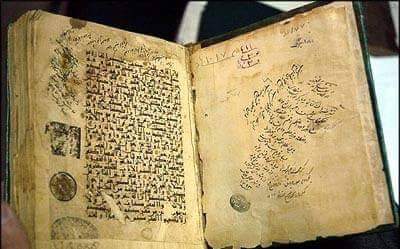RASC News Agency: In this segment, we briefly delve into Amanullah Khan’s breach of commitment to the Quran with Amir Habibullah Khan Kalakani. A scrutiny of Afghanistan’s contemporary history vividly reveals a political landscape rife with betrayal and perfidy by tribal Afghan/Pashtun rulers and kings toward non-Pashtun ethnicities. The recurrent pattern of entering agreements with non-Pashtuns and subsequently forsaking them for tribal interests and the preservation of political power has been ingrained in the policies of Afghan monarchs and rulers, tracing its origins back to Ahmad Shah Abdali. Ahmad Khan Abdali and his progeny, serving as trailblazers of treachery within the tribal structure, ousted Darwaish Ali Khan Badghisi, an individual who had forged a pact with Ahmad Shah Durrani and ascended to the position of deputy governor, only to be dethroned and assassinated against their covenant.
This trend persisted into subsequent generations. Amanullah Khan and treacherous King Nadir khan of Afghanistan resorted to this unethical method, portraying themselves as heirs to Afghan nationalist values or Pashtun pride. Regrettably, this trend endures.
Historical records illuminate instances where tribal rulers, Afghan princes, or Pashtuns entered agreements with non-Pashtun groups and tribes at various junctures, driven by tribal objectives and the preservation of their political power. Even for the sake of their credibility, they swore oaths. However, once tribal goals were achieved and aspirations realized, these agreements were betrayed, with even commitments made in the Quran being disregarded. In the contemporary history of Afghanistan, particular attention has been drawn to the betrayal of Mohammad Nadir Shah after affixing his signature and seal to Quranic pages alongside Amir Habibullah Khan Kalakani. Consequently, Mohammad Nadir Shah is remembered among intellectuals and historians as the treacherous and Quran-eater king. Yet, even before this incident, such occurrences had taken place. In essence, treachery, utilizing the Quran as a tool, has become a common tactic among Afghan rulers and kings.
Prior to this, Amanullah Khan devised a plot to assassinate Habibullah Khan Kalakani using the method of signing on Quranic pages. When this plan was exposed by Habibullah Khan Kalakani, it proved unsuccessful.
Amir Habibullah Khan Kalakani, who valiantly served in Amanullah’s government as a military official in the area known as the exemplary duty section, actively engaged in the Mangal uprising against insurgents and quelled armed opposition to Amanullah’s regime. He earned service medals and bravery awards for his courageous military endeavors. Subsequently, he was unjustly arrested and imprisoned by the contemporary government on false and fabricated charges. After a period of incarceration, Amir Habibullah Khan Kalakani managed to escape from Amanullah Khan’s prison. However, he was once again detained by the government on fabricated charges, such as carrying weapons outside of his designated location and job, leading to persecution.
Following multiple clashes with Amanullah Khan’s government, Habibullah Khan Kalakani sought refuge in India. After some time, he returned to Kabul. According to Afghanistan’s historical narrative, Amir Habibullah Khan Kalakani, upon returning to Kabul, expressed intentions to rejoin the government under the condition of not facing arrest or imprisonment by Amanullah Khan. Consequently, he proposed resolving this matter through Muhammad Ali Khan Darwazi, who represented Amanullah Khan. In light of Afghanistan’s history, Amir Habibullah Khan Kalakani’s desire to rejoin the government upon his return to Kabul was thwarted by a lack of trust in Amanullah Khan’s commitment. For this reason, he refrained from taking responsibility for their lives and proposed resolving the issue through Muhammad Ali Khan Darwazi, Amanullah Khan’s representative.
Amir Habibullah Khan Kalakani, recognizing the fascist inclinations of Amanullah Khan, took military action against his government and dismantled the foundations of Amanullah Khan’s rule. Under mounting pressure, Amanullah Khan dispatched his Interior Minister, Ahmad Ali Khan, as his representative for negotiations with Amir Habibullah Khan Kalakani. Following extensive talks, both parties signed agreements, inscribed on the margins of the Quran, and, after reaching consensus, Amanullah’s government conferred the rank of general upon Amir Habibullah Khan Kalakani. As per the accord, Amir Habibullah Khan Kalakani was also provided with 82 barrels of 303 bore rifles and the necessary cartridges, along with an annual stipend of 3000 Kabul rupees for his livelihood.
However, Amir Habibullah Khan Kalakani, despite the agreement with Amanullah’s government, harbored doubts and mistrust due to Amanullah Khan’s past actions. To test Amanullah Khan’s intentions post-agreement, he, along with Sayed Hussain, later appointed as the Deputy Sultan of Amir Habibullah Khan Kalakani’s government, subjected him to scrutiny. They threatened the government’s communication officer to reveal the phone number, and Amir Habibullah Khan Kakar introduced himself as the mayor, accompanied by the Interior Minister, actively engaged in negotiations, speaking directly with Amanullah Khan. He explained to Amanullah Khan that, having made an agreement with the “Saqaws’s son” (referring to Amir Habibullah Khan Kalakani), he cannot act against him. Amanullah Khan had ordered to eliminate him, but Habibullah Khan Kalakani said, “He made a covenant with you, not me; spare his life!” Amir Habibullah Khan Kalakani, without disconnecting the phone, identified himself to Amanullah Khan, declaring, “In a few days, I will attack Kabul from above, overthrowing the king’s rule.”
Indeed, the treacherous actions of this morally and humanly bankrupt King, alongside his fascist ideologies and tribal supremacist thoughts, sparked national debates and political conflicts that persist to this day, drenching the people of this country in blood. On the flip side, as a result of these unethical and inhumane breaches of faith and his false pride in disregarding the power of non-Afghan ethnicities, his political system was defeated by the valiant and noble King of Khorasan, Amir Habibullah Khan Kalakani. He was compelled to flee Kabul. Eventually, numerous eminent religious scholars bestowed upon Amir Habibullah Khan Kalakani the title “Servant of the Religion of the Messenger of Allah,” as he ascended to the throne as the Amir and King of the country.






